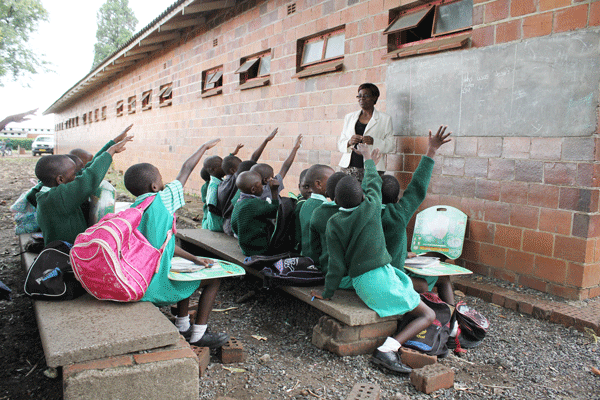
“Can I have a volunteer, please?” If we ask that question in a primary school class, the chances are that every hand will go up immediately, even before we have said what the volunteer may be required to do! Children at that age seem to love to volunteer to do things, perhaps because they love the limelight that may come with the offer.
By Tim Middleton
Yet by the time the same children have reached secondary school, and in particular the higher rungs of secondary school, they no longer are so keen to volunteer; they keep their hands down and hide behind the person in front in case the teacher “volunteers” them by catching their eye.
A similar story could be told about parents.
Ask a parent of a Grade 0 or Grade 1 child to volunteer their services for the school and they will jump around with great enthusiasm and excitement.
As their child progresses through primary school, however, and indeed into secondary school, they become less involved and volunteer their services less and less.
The reality is that we are not good at volunteering, in no small way due to the very materialistic world in which we live, which lives by the mantra of “what’s in it for me?” However, we need to look deeper as to why we do not do well in our acts of service to others, to the community, to society, as a whole.
There could well be many reasons for this.
- Chamisa under fire over US$120K donation
- Mavhunga puts DeMbare into Chibuku quarterfinals
- Pension funds bet on Cabora Bassa oilfields
- Councils defy govt fire tender directive
Keep Reading
Firstly, we do not do service well as we emphasise the glamour of leadership.
Secondly, we emphasise the importance of people’s rights (especially children’s rights) but fail to emphasise that with rights come responsibilities; this leads our children to a sense of entitlement.
Parents in particular complicate the idea by doing their child’s work for her, running after her tidying up, bringing forgotten kit or lunch, defending against punishments.
Thirdly, we perpetuate the system of rank and privilege in our schools whereby seniors are entitled to enjoy privileges (by virtue simply of being older) and juniors are expected to do the dirty work; no senior is going to volunteer to serve as people will think they are juniors.
Fourthly, we ignore the aspect of voluntary service as we have servants in our homes who are paid to do the dirty work.
Fifthly, leaders set a poor example of service. Sixthly, we force (or equally bribe) people to do things instead of encouraging them to offer their services voluntarily.
Let us admit it, as a first step: we do not do service well.
It is in this context that we discover that the new curriculum seeks to emphasise the importance of “participatory citizenship”; we are to motivate our learners to “voluntarily engage” in it.
If this country is truly to develop, grow and prosper, we certainly do need to do exactly that.
We must go further, however, and prepare our learners for life-long participatory service, not just while they are at school.
We need to address all those issues in the previous paragraph.
Leaders in government, business, church or schools, need to set the highest example.
We must give more credit to service than to leadership. We must change our systems and our thinking.
We must require greater responsibility from everyone.
We increase the need for service by ignoring the responsibilities we each have, as our dreadful litter problem only exemplifies.
We live in a society that may be encapsulated in the well-known piece called “That’s Not My Job!” “This is a story about four people named Everybody, Somebody, Anybody and Nobody.
There was an important job to be done and Everybody was sure that Somebody would do it.
Anybody could have done it, but Nobody did it. Somebody got angry about that, because it was Everybody’s job.
Everybody thought Anybody could do it, but Nobody realised that Everybody wouldn’t do it.
It ended up that Everybody blamed Somebody when Nobody did what Anybody could have done.”
In tennis, the successful player is the one who can play all the shots: the forehand, backhand, drive, pass, smash, drop shot, spin.
However, all those shots are worthless and pointless if we cannot get our service in; we will never win a point if we do not get the service in.
We will never be a winner if we cannot serve well.
It takes little logic to realise that exactly the same applies to life; we will never achieve anything if we are not able to get our service in.
We may be brilliant at so many other things but they are all worthless and pointless if we do not get our service in.
We may ask futilely for a volunteer when all we will get is a profiteer or a racketeer.
We need to drop the racket and be the ball boy.
Otherwise we will end up as a nobody.
So, any volunteers?
Tim Middleton is the executive director of the Association of Trust Schools.
The views expressed in this article, however, are solely those of the author in his private capacity and do not necessarily represent the view of the ATS.
email: [email protected]
website: www.atschisz.co.zw











